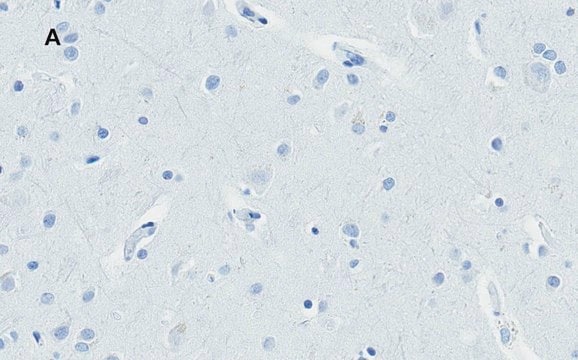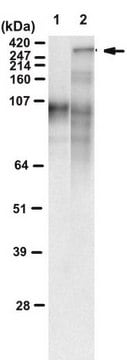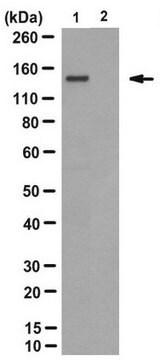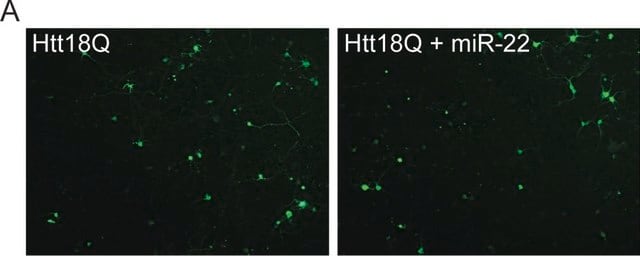MAB2168
Anti-Huntingtin Protein Antibody, a.a. 2146-2541, clone HU-2E8
ascites fluid, clone HU-2E8, Chemicon®
About This Item
Productos recomendados
biological source
mouse
Quality Level
antibody form
ascites fluid
antibody product type
primary antibodies
clone
HU-2E8, monoclonal
species reactivity
monkey, human
manufacturer/tradename
Chemicon®
technique(s)
ELISA: suitable
immunocytochemistry: suitable
immunohistochemistry: suitable (paraffin)
western blot: suitable
isotype
IgG1
NCBI accession no.
UniProt accession no.
shipped in
dry ice
target post-translational modification
unmodified
Gene Information
human ... HTT(3064) , SLC6A4(6532)
Specificity
Immunogen
Application
Western blot: 1:500-1:5,000
Immunohistochemistry on frozen and microwave oven treated paraffin sections
(human tissue): 1:500-1:5,000
Immunocytochemistry on transfected cells: 1:500-1:5,000
Optimal working dilutions must be determined by the end user.
Neuroscience
Neurodegenerative Diseases
Physical form
Legal Information
Disclaimer
¿No encuentra el producto adecuado?
Pruebe nuestro Herramienta de selección de productos.
Optional
Storage Class
10 - Combustible liquids
wgk_germany
nwg
flash_point_f
Not applicable
flash_point_c
Not applicable
Certificados de análisis (COA)
Busque Certificados de análisis (COA) introduciendo el número de lote del producto. Los números de lote se encuentran en la etiqueta del producto después de las palabras «Lot» o «Batch»
¿Ya tiene este producto?
Encuentre la documentación para los productos que ha comprado recientemente en la Biblioteca de documentos.
Nuestro equipo de científicos tiene experiencia en todas las áreas de investigación: Ciencias de la vida, Ciencia de los materiales, Síntesis química, Cromatografía, Analítica y muchas otras.
Póngase en contacto con el Servicio técnico





